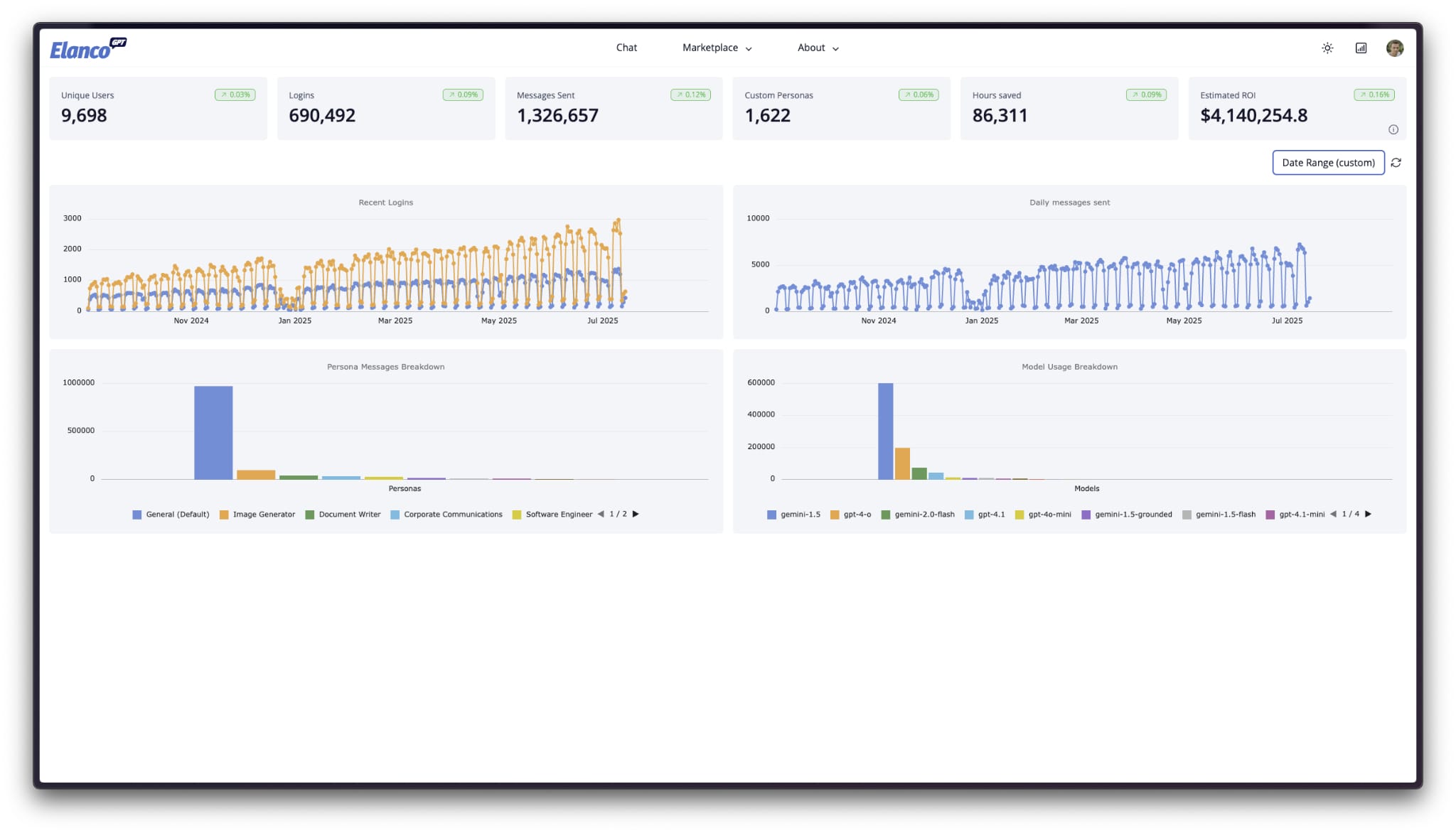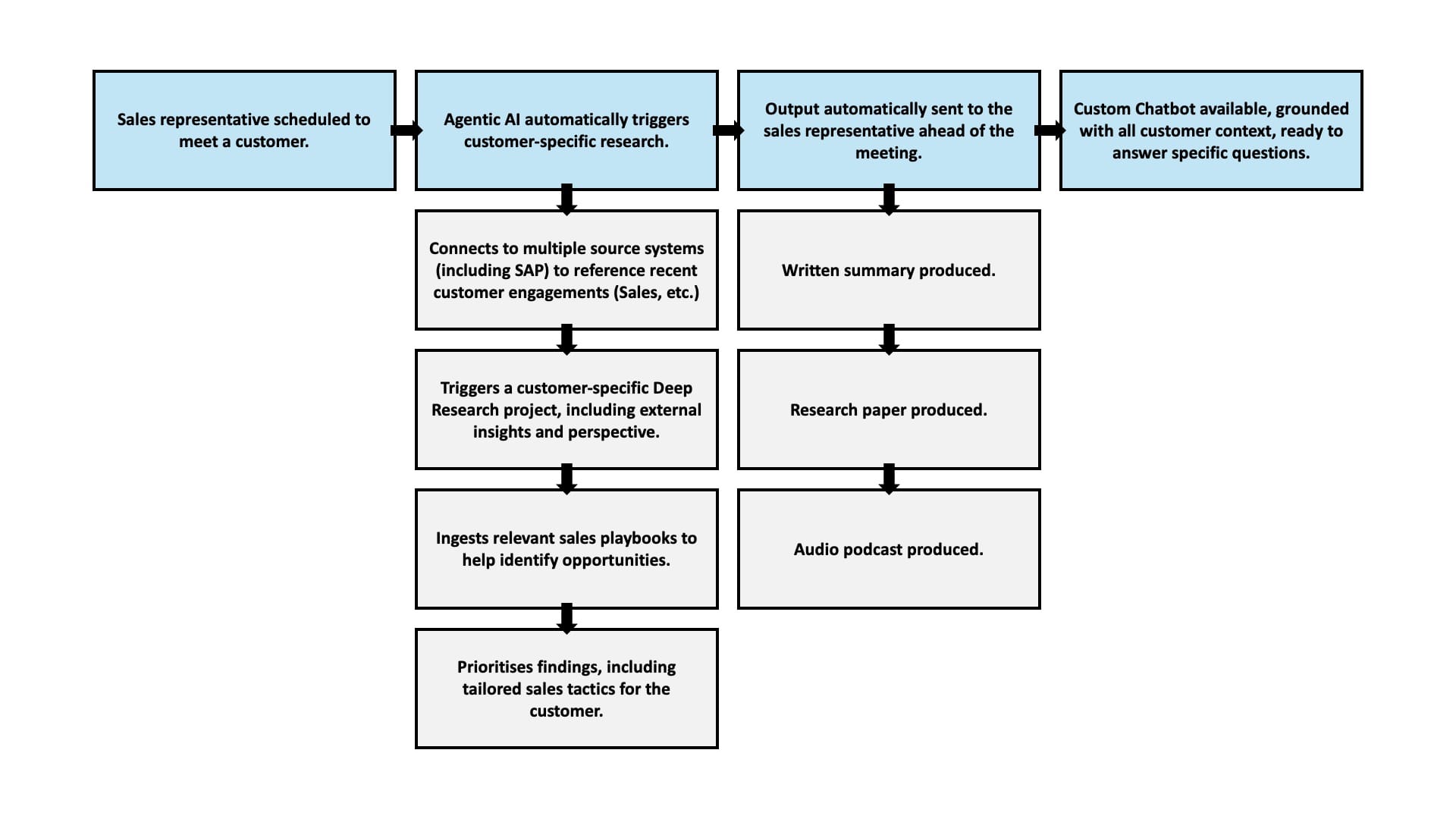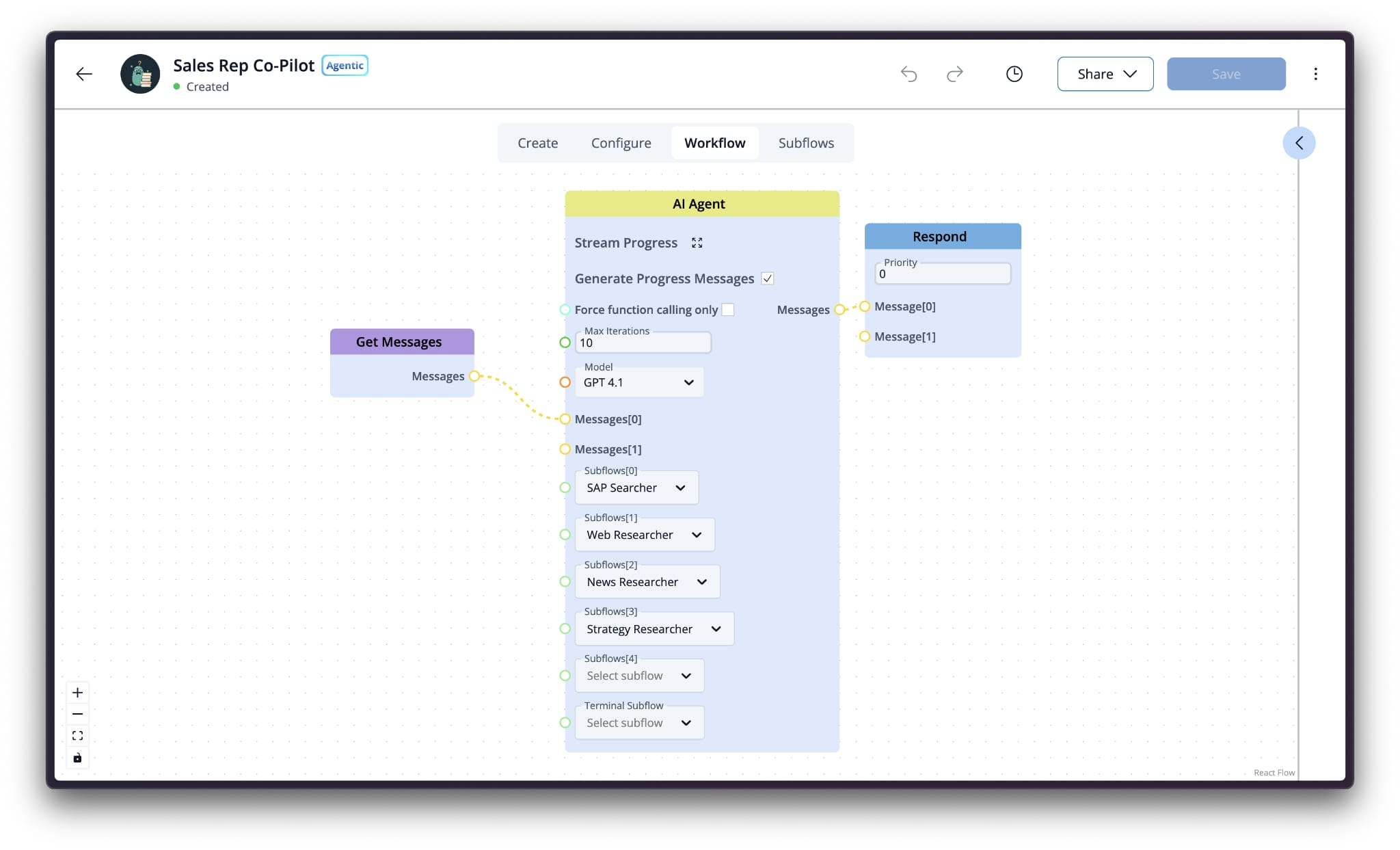Agentic AI in Action
With the launch of ChatGPT, my team began work on a multi-model, multi-modal Generative AI framework for business.
Over the years, this framework has evolved to include Agentic AI capabilities, enabling AI to take action, supporting a wide variety of business use cases.
We are very proud of our work, which has been publicly recognised, including endorsements from Google and Microsoft, alongside the Business Transformation & Operational Excellence Summit (BTOES) industry award for enterprise AI.
I have documented this journey over a series of blog posts.
- OpenAI ChatGPT
- AI - Rise of the Machines
- Generative AI for Business
- Prompt Engineering
- Generative AI for Business - Update
- Generative AI - Embeddings
- Generative AI - Context
- Integrated Generative AI
- Generative AI - Enhancements
- Generative AI - EoY
- BTOES Awards
- Generative AI - Value
- Generative AI - Update
- Google Gemini at Work
- Google Elevate Every Experience
- Agentic AI
- Google AI Business Trends
- Google Gemini Case Study
- Microsoft Security Case Study
As we close the year, our Generative AI framework has reached another significant milestone (see the dashboard screenshot below).
With over 9,695 unique users and approximately 3,000 daily interactions, the organic adoption continues to grow at an impressive rate. Since launch, we have seen over 86,000 hours (3,584 days) saved, resulting in an estimated ROI of $4.1M.
Alongside the business numbers, we transact approximately 3 billion tokens per month across ten primary AI models (Google and OpenAI).
Additional statistics include.
- ~1,500 Custom Personas Created
- ~44,000 Documents Translated
- ~250,000 Lines of Code Accepted
- ~5,000 External Research Projects Completed
- ~75,000 Images Created
Thanks to our ephemeral cloud-native architecture, this scale is achieved at a cost of approximately $6,000 per month ($72,000 per year), which includes all users, AI models, integrations and data. By comparison, if we were to use Microsoft 365 Copilot for the same number of users, which has specific restrictions regarding AI models, integrations and data, the cost would be approximately $3.5M per year.
Since my last article on this topic, we have introduced a range of new capabilities.
-
Deep Research - An agentic AI feature that can automatically browse websites, think through its findings, and create insightful multi-page reports. The process covers planning, searching, reasoning, and reporting, making it useful for competitive analysis, due diligence, etc.
-
Specialist AI Agents - Dedicated AI agents with the required grounding, context and access to execute specific tasks. The AI agents can be engaged individually or as part of a group, configured within a workflow, allowing for more complex outcomes.
-
Voice Assistant - A real-time voice assistant, enabling conversational AI. Useful for employees without easy access to a laptop, such as road warriors like sales representatives.
-
Screen Sharing - The ability to screen share, allowing the screen and all open software/data to be referenced as context. Useful for IT support, when troubleshooting an issue or when looking to produce specific steps personalised to the individual’s configuration.
-
Interoperability - Model Context Protocol (MCP) support, enabling generative AI models to access and utilise external tools, data, and services in a consistent and reusable way. New integrations include core systems of record, such as ServiceNow, etc.
-
User Experience - Refined user interface that is optimised for a wide variety of devices, specifically smartphones, installed as a Progressive Web App (PWA) for Apple iOS and Google Android.
In my opinion, the most exciting new capability is the release of specialist AI agents, which can execute specific tasks on behalf of a user, including complex outcomes.
For example, we are working on the following Agentic AI workflow for our sales representatives. The image below outlines the concept.
Outlined below is the workflow that triggers AI agents, specifically the “Web Searcher”, “Web Researcher”, etc.
We believe this AI assistant will support five key aspects of the sales process, solving specific problems.
- Unification of customer insights, automatically connecting multiple disparate systems and data sources.
- Identifying relevant customer insights, covering internal and external references.
- Creation of customer-specific tactics, based on relevant sales playbooks.
- Output available via multiple channels, including an audio podcast for consumption on the road.
- A personal assistant, pre-grounded with customer context, available for real-time data analysis and support.
The outcome should deliver speed, cost reduction and precision, allowing our sales teams to be more effective within the field, whilst also ensuring our customers receive a personalised engagement.
Similar to this example, we are confident that Agentic AI can be applied across the value chain, supporting a wide variety of use cases. If true, these AI agents will augment the human workforce, positively impact efficiency and effectiveness, whilst directly contributing to margin expansion, specifically profitability.
Exciting times ahead! I’ll be sure to share more information as we progress our story.


